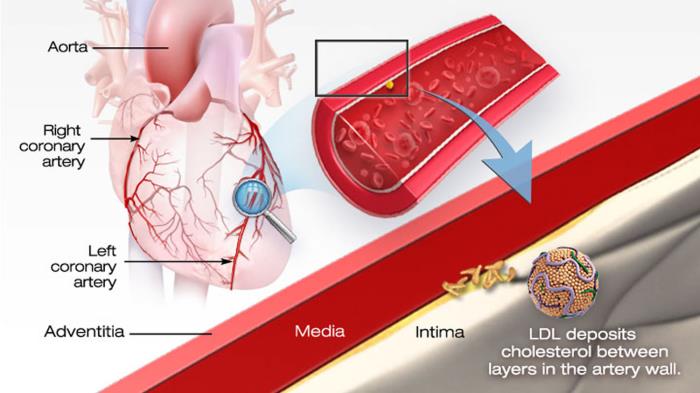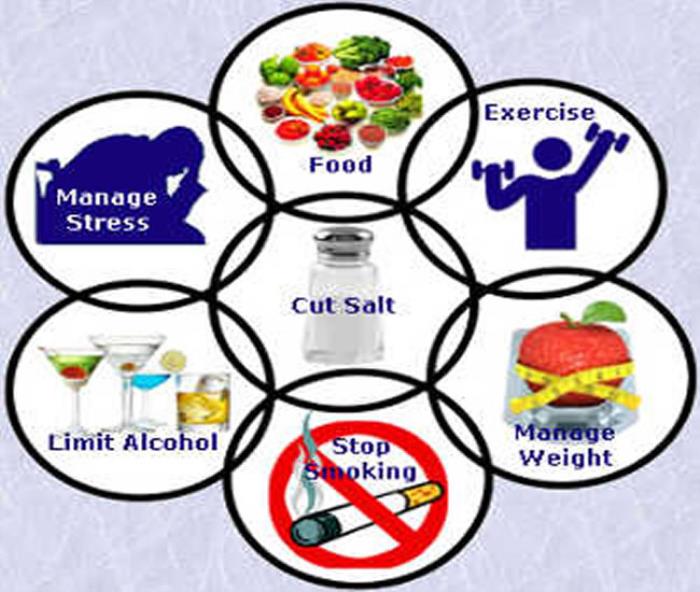Preoperative health is crucial for ensuring successful surgical outcomes and minimizing complications. Before any surgical procedure, particularly those involving the heart, it is essential to assess and optimize a patient's health status. This involves understanding key health indicators, such as blood pressure and cholesterol levels, which can significantly impact heart health and overall surgical risk. By addressing these factors prior to surgery, patients can improve their chances of a smooth recovery and better long-term outcomes.
Medical disclaimer: This content is for general awareness and does not replace a doctor’s consultation. For diagnosis or treatment decisions, consult a qualified specialist.
Understanding Blood Pressure: What It Means for Heart Health
Blood pressure is a measure of the force exerted by circulating blood against the walls of blood vessels. It is expressed as two numbers: systolic pressure (the force during heartbeats) over diastolic pressure (the force when the heart is at rest). Maintaining healthy blood pressure is vital for heart health, as elevated levels can lead to hypertension, increasing the risk of heart disease, stroke, and other cardiovascular complications. Understanding one's blood pressure readings can empower patients to take necessary steps toward better health.
The Role of Cholesterol in Heart Disease: Key Concepts
Cholesterol is a fatty substance found in the blood that is essential for building cell membranes and hormones. However, an imbalance of cholesterol levels can contribute to the development of heart disease. Cholesterol is classified into two main types: low-density lipoprotein (LDL), often referred to as "bad" cholesterol, and high-density lipoprotein (HDL), known as "good" cholesterol. High levels of LDL cholesterol can lead to plaque buildup in the arteries, increasing the risk of atherosclerosis and heart attacks. Monitoring and managing cholesterol levels is critical for heart health, especially before undergoing surgery.

How High Blood Pressure Affects Heart Function
High blood pressure, or hypertension, places extra strain on the heart and blood vessels. Over time, this increased pressure can lead to thickening of the heart muscle, reduced elasticity of blood vessels, and ultimately heart failure. Additionally, hypertension can damage the arteries, making them more susceptible to atherosclerosis. For surgical candidates, controlling blood pressure is essential to reduce the risk of complications during and after surgery, ensuring that the heart can function effectively under the stress of the surgical procedure.
The Impact of Cholesterol Levels on Heart Disease Risk
Cholesterol levels significantly influence the risk of developing heart disease. Elevated LDL cholesterol levels contribute to the formation of arterial plaques, which can obstruct blood flow and lead to serious cardiovascular events, such as heart attacks and strokes. Conversely, higher levels of HDL cholesterol can help remove LDL cholesterol from the bloodstream, providing a protective effect against heart disease. Understanding and managing these cholesterol levels is essential for patients, especially those preparing for surgery, as optimal cholesterol management can reduce surgical risks and improve recovery outcomes.
Assessing Your Blood Pressure and Cholesterol: Tests and Measurements
To effectively manage preoperative health, patients should undergo regular assessments of their blood pressure and cholesterol levels. Blood pressure can be easily measured using a sphygmomanometer, while cholesterol levels are typically evaluated through a blood test called a lipid panel. This panel provides detailed information about total cholesterol, LDL, HDL, and triglycerides. Regular monitoring allows for timely interventions, such as lifestyle changes or medication adjustments, to ensure that these critical health metrics are within acceptable ranges prior to surgery.
Lifestyle Changes to Lower Blood Pressure Before Surgery
Implementing lifestyle changes can significantly help lower blood pressure in preparation for surgery. Key modifications include adopting a heart-healthy diet, such as the DASH (Dietary Approaches to Stop Hypertension) diet, which emphasizes fruits, vegetables, whole grains, and lean proteins while limiting sodium intake. Regular physical activity, weight management, and stress reduction techniques, such as mindfulness or yoga, can also contribute to lower blood pressure levels. Quitting smoking and limiting alcohol intake are further essential steps in promoting overall cardiovascular health and enhancing surgical readiness.

Dietary Strategies for Managing Cholesterol Levels
Managing cholesterol levels through dietary strategies is crucial for maintaining heart health. A heart-healthy diet emphasizes the consumption of fruits, vegetables, whole grains, and lean proteins while reducing saturated and trans fats. Foods high in soluble fiber, such as oats, beans, and fruits, can help lower LDL (bad) cholesterol. Additionally, incorporating healthy fats, such as those found in avocados, nuts, and olive oil, can support overall heart health. Patients are encouraged to limit processed foods and sugary beverages, as these can contribute to weight gain and higher cholesterol levels. By making informed food choices, individuals can effectively manage their cholesterol and reduce their risk of cardiovascular disease.
The Importance of Regular Exercise in Blood Pressure Control
Regular exercise plays a vital role in controlling blood pressure and promoting overall cardiovascular health. Engaging in physical activity helps strengthen the heart, improve circulation, and reduce stress, all of which can lead to lower blood pressure levels. Aim for at least 150 minutes of moderate aerobic activity each week, such as walking, cycling, or swimming. Resistance training can also be beneficial. Consistency is key; incorporating exercise into your daily routine can yield long-term benefits. Additionally, even small amounts of physical activity can have a positive impact on blood pressure, making it accessible for individuals at any fitness level.
Medication Management: When and How to Use Them
Medication management is an essential component of controlling blood pressure and cholesterol levels, especially for patients at high risk for heart disease. Various medications, such as statins for cholesterol management and antihypertensives for blood pressure control, may be prescribed based on individual health needs. It is important for patients to understand their medications, including how they work, potential side effects, and the importance of adherence to prescribed regimens. Regular consultations with healthcare providers can help assess medication effectiveness and make necessary adjustments. Patients should never hesitate to discuss any concerns or side effects with their doctors to ensure optimal management of their cardiovascular health.
Stress Reduction Techniques: Keeping Your Heart Healthy
Stress management is crucial for maintaining heart health, as chronic stress can lead to elevated blood pressure and unhealthy coping mechanisms, such as overeating or smoking. Implementing stress reduction techniques can significantly benefit cardiovascular health. Practices such as mindfulness meditation, deep breathing exercises, yoga, and regular physical activity can help alleviate stress. Finding time for hobbies, spending time with loved ones, and ensuring adequate sleep are also vital components of a healthy lifestyle. By prioritizing stress reduction, individuals can improve their overall well-being and contribute to better heart health.
The Connection Between Obesity and Blood Pressure/Cholesterol
Obesity is a significant risk factor for high blood pressure and elevated cholesterol levels, creating a complex relationship that can exacerbate cardiovascular issues. Excess body weight can increase the workload on the heart, leading to hypertension, and can alter the body’s metabolism, resulting in higher cholesterol levels. Weight loss through a balanced diet and regular exercise can effectively lower both blood pressure and cholesterol, reducing the risk of heart disease. Healthcare providers often emphasize the importance of achieving and maintaining a healthy weight as a fundamental strategy for improving heart health.
Monitoring Your Progress: Keeping Track of Improvements
Monitoring progress is essential for effective management of blood pressure and cholesterol levels. Regularly checking blood pressure and having cholesterol levels tested can help individuals understand how well their lifestyle changes and medications are working. Keeping a health journal or using mobile apps to track readings, dietary habits, and exercise can provide valuable insights into personal health trends. Engaging in regular check-ups with healthcare providers can also facilitate discussions about progress and necessary adjustments in management strategies. This proactive approach empowers individuals to take charge of their health and celebrate improvements over time.

Importance of Preoperative Consultations with Healthcare Providers
Preoperative consultations with healthcare providers are critical for patients preparing for heart bypass surgery. These consultations allow for thorough assessments of the patient's overall health, including blood pressure and cholesterol levels, which are essential for successful surgical outcomes. Providers can identify and address any potential risk factors before surgery, ensuring that patients are in the best possible condition for the procedure. This is also an opportunity for patients to ask questions, understand the surgical process, and receive guidance on managing their health leading up to the operation.
Understanding the Risks of High Blood Pressure and Cholesterol Before Surgery
High blood pressure and elevated cholesterol levels pose significant risks during and after heart bypass surgery. Uncontrolled hypertension can lead to complications such as heart attack or stroke during the procedure, while high cholesterol can affect the success of the surgery and increase the likelihood of graft failure. Understanding these risks emphasizes the importance of managing these factors prior to surgery. Patients are encouraged to work closely with their healthcare providers to optimize their health through lifestyle changes and medication management to minimize potential complications.
Setting Realistic Goals for Blood Pressure and Cholesterol Management
Setting realistic goals for blood pressure and cholesterol management is essential for long-term success. Goals should be specific, measurable, achievable, relevant, and time-bound (SMART). For example, aiming to reduce LDL cholesterol levels by a certain percentage within a specific timeframe can provide clear direction. Additionally, patients should focus on gradual changes, such as incorporating more fruits and vegetables into their diet or increasing physical activity levels. Celebrating small victories along the way can help maintain motivation and commitment to a heart-healthy lifestyle.
The Role of Family Support in Maintaining Healthy Habits
Family support is a crucial element in maintaining healthy habits for managing blood pressure and cholesterol levels. Encouragement from loved ones can foster a positive environment that promotes adherence to dietary changes, exercise routines, and medication regimens. Family members can participate in healthy activities together, such as cooking nutritious meals or going for walks, creating a sense of accountability and shared goals. Open communication about health challenges and successes also strengthens relationships and enhances overall well-being.
Preparing for Surgery: Final Steps in Blood Pressure and Cholesterol Management
Preparing for heart bypass surgery involves final steps in managing blood pressure and cholesterol levels. Patients should ensure they are following their prescribed medication regimens and adhering to dietary recommendations in the weeks leading up to surgery. Engaging in regular physical activity and monitoring blood pressure and cholesterol readings can help optimize health. It's also essential to maintain open communication with healthcare providers to address any concerns and confirm that all necessary preoperative assessments are completed.
Success Stories: Patients Who Improved Their Health Before Surgery
Success stories of patients who improved their health before heart bypass surgery can serve as powerful motivation for others facing similar challenges. Many individuals share how making lifestyle changes, such as adopting a healthier diet and increasing physical activity, led to significant improvements in their blood pressure and cholesterol levels. These testimonials highlight the transformative power of commitment and support, encouraging others to take proactive steps toward better heart health in preparation for surgery.
Importance of Cardiac Rehabilitation for Long-Term Heart Health
Discover the vital role of cardiac rehabilitation after heart bypass surgery. This section discusses how structured rehabilitation programs promote recovery, improve cardiovascular fitness, and foster healthy lifestyle habits, contributing to long-term heart health.
Life After Heart Bypass Surgery: What to Expect
Get insights into life after heart bypass surgery. This section outlines the typical recovery process, emotional adjustments, and the lifestyle changes necessary to maintain heart health, providing patients with realistic expectations for their post-operative journey.
Conclusion: Building a Foundation for Successful Heart Bypass Surgery
Building a solid foundation for successful heart bypass surgery requires effective management of blood pressure and cholesterol levels. Through dietary changes, regular exercise, medication management, and strong family support, patients can optimize their health in preparation for surgery. Engaging in proactive monitoring and setting realistic goals further enhances this foundation, empowering individuals to take charge of their health. By prioritizing these aspects, patients can improve their surgical outcomes and pave the way for a healthier future.
Best Heart Bypass Surgery in India
The Best Heart Bypass Surgery in India is a critical procedure that reroutes blood flow around blocked arteries, improving blood supply to the heart and enhancing patient health and quality of life.
Best Heart Bypass Surgery Hospitals in India
The best heart bypass surgery hospitals in india feature advanced medical facilities and expert cardiology teams, providing comprehensive care from diagnosis to post-surgery recovery for optimal outcomes.
Heart Bypass Surgery Cost in India
The heart bypass surgery cost in india is competitively priced, ensuring patients receive high-quality treatment with transparent pricing and affordable care options.
Best Heart Bypass Surgeons in India
The Best Heart Bypass Surgeons in India are skilled and experienced professionals, committed to delivering personalized care and achieving the best possible surgical outcomes for heart patients.
FAQ:
Why is it important to manage blood pressure and cholesterol before heart bypass surgery?
Managing blood pressure and cholesterol before surgery is critical to minimize the risks of complications during and after the procedure, leading to better outcomes.
What lifestyle changes can help lower blood pressure?
Lifestyle changes such as maintaining a healthy diet, engaging in regular physical activity, managing stress, and avoiding tobacco can significantly lower blood pressure.
How can diet impact cholesterol levels prior to surgery?
A diet low in saturated fats and high in fiber can help lower LDL cholesterol levels, improving overall heart health before surgery.
Are there specific medications I should be aware of?
Patients should discuss with their healthcare providers any medications that may be necessary to manage blood pressure and cholesterol effectively prior to surgery.
How can I track my blood pressure and cholesterol levels effectively?
Keeping a health journal, using mobile apps, and scheduling regular check-ups with healthcare providers can help track blood pressure and cholesterol levels effectively.